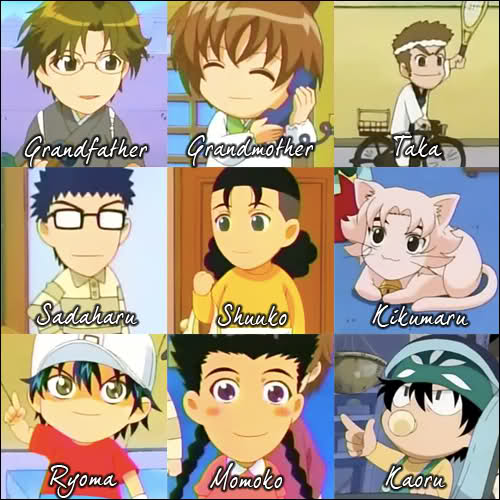I have chosen to do せんりゅうfor my Katakana Literary Works, however, because of my limited knowledge of Japanese, I was not always able to make the 5-7-5 format work perfectly. ごめんなさい。わるいせんりゅうです。。。
1)せかいで
こどもがあそぶ
ムジャキです
Translation:
In the world
children play
innocent.
2) あきのあめ
しぜんのわらい
シューシューだ
Translation:
Autumn rain
nature's laughter
shuu shuu.
3) にびねこは
にほんのテイル
にほんある
Translation:
The two-tailed cat
has two (thin/long)
Japanese tails.
Explanation of my use of katakana:
In the first poem, I used katakana for emphasis--I wanted to create a sense in the reader of how much importance we place on the innocence of children and make the reader aware of how fragile and fleeting that innocence is.
In the second poem, the katakana is clearly onomatopeic. I love the sound of rain outside my window, and I wanted to capture the fact that, although rain is usually associated with sadness, to me rain sounds happy.
In the third poem, the katakana was used for a loan word, the word "tail." I liked the irony of juxtaposing a foreign word for tail with the play on words between nihon (Japan) and nihon (counter for thin, long objects like tails).

I really like the sound of rain here! when I was writing my own piece, I wanted to put a sound of rain somewhere but faile :P Moreover,this シューシュー did capture a naughtiness of the rain~ It sounds so "happy" and lovable~
ReplyDeleteI like the play on words in your third poem, the homonym I guess is what you would call it.
ReplyDeleteI also like the repetition of the sound "ni" it gives the poem a nice flow.
Three good poems overall.
いいですね!
日本語のTAのアーントです。 I like the second poem with the sound of the rain. The only thing I might add is that シューシュー is already an existing onomatopoeia in Japanese, and a Japanese reader would automatically connect it to the sound of steam, or a train (the American choo choo). And I really like the usage of the katakana for tail in the third piece!
ReplyDeletethanks for the tip ardnt-san! i will change it to sha-sha- since that seems to be an acceptable rain sound...
ReplyDeleteI really like how you were able to demonstrate virtually the full scope of katakana and its uses and by doing so, how they affect the poem. Although the onomatopoeia and the loan word are both in katakana for example, they convey different things to the reader. I think your senryu weren't warui at all! :)
ReplyDeleteこんにちは!あなとのせんりゅはいいですね!いろいろなuses ofかたかながあります。あめのせんゆがだいすきです。
ReplyDeleteI really like the first poem. Based on your English translation, it could be interpreted to mean that the children "play innocent", but they really know more than we think they do. But as I read in Japanese, they play, and their ability to have pure fun reflects their innocence. ほんのあなたのせんりゅうがほしいです!
ReplyDelete